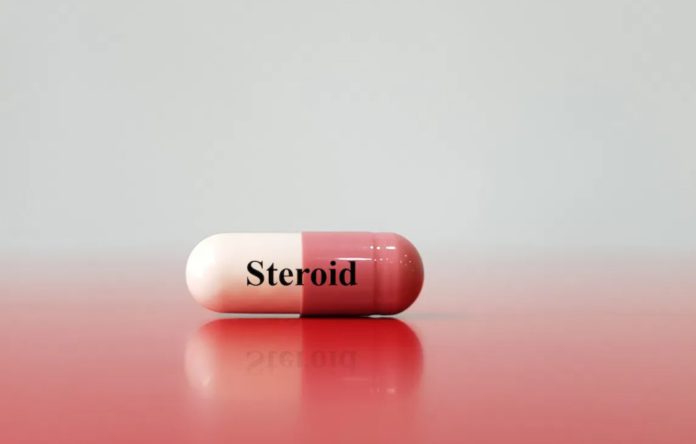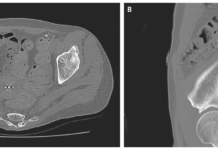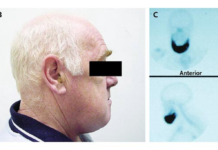A 46-year-old woman had been battling SLE for the past 20 years, but a recent increase in her steroid dose leads to psychosis. A case of mania due to steroid use!
A 46-year-old woman, a known case of systemic lupus erythematosus (SLE) for the past 20 years, got admitted to the hospital due to mania and psychomotor excitement. The patient had been taking prednisolone in doses, starting from 7.5 mg to a maximum of 30 mg per day. The doctors suspected that the patient developed psychosis secondary to steroid use.
History of steroid use:
History revealed that SLE was under control for the past 5 years with a prednisone dose of 12.5 mg per day. She was also taking triazolam, 7.5 mg per day, or flunitrazepam, 2 mg daily, for insomnia, for the past 15 years. During this time, she had no complaints of depression, mania, or psychosis. However, 2 months before the presentation, her doctors had increased the daily prednisone dose to 40mg to manage the exacerbation of erythema. After a month of increasing the dose, the patient had a hypomanic episode (DSM-IV criteria). She was more talkative than usual. Moreover, she was more hyperactive too. Thus, the doctors tapered the dose of prednisolone to 30 mg daily.
Physical examination and workup:
Head-to-toe physical examination of the patient and the laboratory investigations, including cerebrospinal fluid analysis and imaging were unremarkable and didn’t reveal any sign of diagnostic significance.
Diagnosis:
Finally, they diagnosed her with steroid-induced psychosis (DSM-IV criteria). Since the patient had an exacerbation of SLE, her doctors increased her daily steroid dose, which consequently led to psychosis.
Management of steroid-induced psychosis:
Since the patient had psychomotor excitation, oral treatment was not appropriate; therefore, her doctors started her on 20 mg of intravenous haloperidol and 30 mg of intravenous prednisolone daily.
After a week, intravenous haloperidol was replaced by risperidone 4 mg daily. The dose of valproic acid was increased to 800 mg per day. Subsequently, her symptoms resolved over the next weeks, therefore, the doctors discharged her after another 2 weeks. At the time of discharge, her tapered prednisone dose was 22.5 mg by the time of discharge.
She did not experience any psychotic symptoms during the following month; therefore, it was safe for her to stop risperidone. Valproic acid successfully controlled her symptoms since the discharge.
How to determine whether psychosis was secondary to steroid use or SLE?
Although indistinguishable symptom-wise; the onset, the progression and the disappearance of the symptoms were clearly governed by the increase in the dose of prednisone. Resolution of symptoms with tapering of prednisone further confirmed it.
Reference:
Kato O, Misawa H. Steroid-induced psychosis treated with valproic acid and risperidone in a patient with systemic lupus erythematosus. Prim Care Companion J Clin Psychiatry. 2005;7(6):312. doi:10.4088/pcc.v07n0610b




